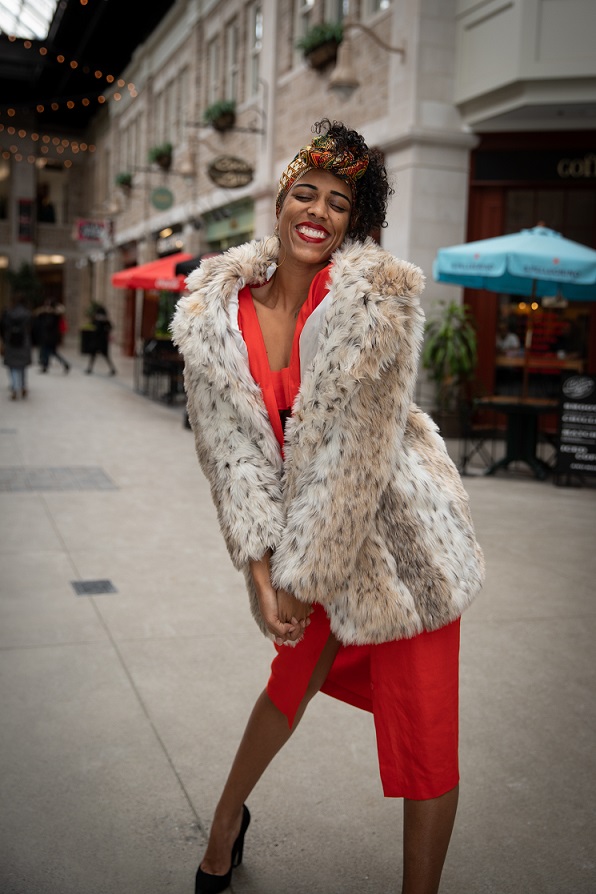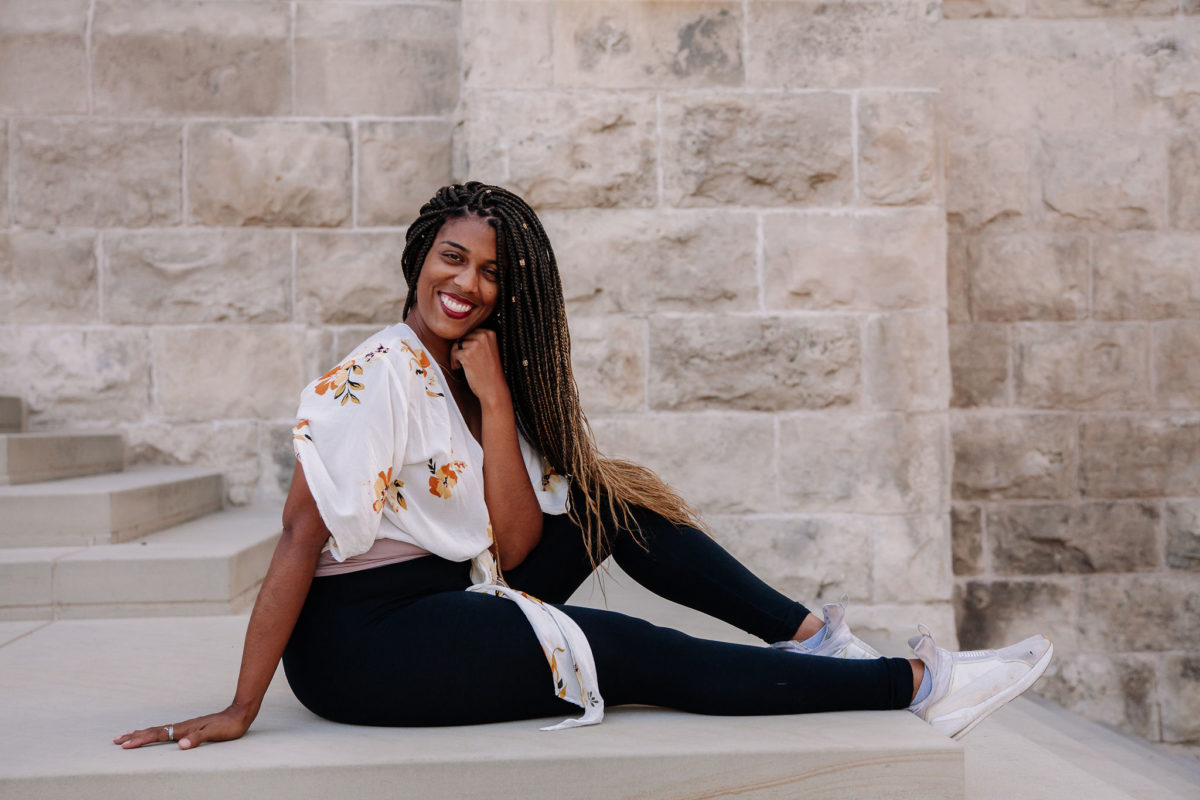By: Fan-Ling Suen
A conversation with Kween, Guelph Dance’s Artist in Residence and Executive Director of the Guelph Black Heritage Society
Kween holds an artistic residency for 2020/2021 with Guelph Dance to expand her creative ideas for the Black Community through dance. Within the BIPOC (Black, Indigenous and Person of Colour) community, she advocates for the rights of African and Caribbean people as Executive Director for Guelph Black Heritage Society and works closely on anti-racism training, social justice and policy change. Kween was the leader of Guelph’s June 6th Solidarity Protest in support of Black Lives Matter protest and uses her platform to educate her community and elected officials.
To learn more, Guelph Arts Council interviewed Kween over Zoom to ask her a few questions about her dance practice, the value of art in communities and her advocacy work with the Guelph Black Heritage Society and the BLM movement.
Kween, Guelph Dance’s Artist in Residence, Executive Director of the Guelph Black Heritage Society and owner of The Kween Company and The Heels Academy in Guelph. Image provided by Kween.
*Please note, this interview has been paraphrased*
Can you tell us about your dance practice and how it has evolved over the years? What inspires you?
I was diagnosed with fibromyalgia, so I never thought dance would be in my future. For me, dance became a healing tool both physically and mentally. Once I graduated from Randolph Academy for the Performing Arts in Toronto, I pivoted into the world of dance and began working for Carnival Spice – a fitness and entertainment company in the GTA. This experience became an opportunity for me to immerse myself in Caribbean and African culture, an experience I did not have growing up in Guelph. I later decided to move back home to Guelph. This transition was an opportunity for me to transport some of the rich multicultural experiences I had in Toronto and bring them back with me to share with the Guelph arts community as a way to be part of the change that will make our city more inclusive.
Since returning to Guelph, I started a new business, The Heels Academy with co-owners Michelle Suralya and Vanessa Laidley. Together, we operate a training and dance program for adults (18+) that welcomes all walks of life to come together to dance. As a direct result of my own dance journey, I believe my role as a dance teacher is to inspire souls and to encourage new dancers at any age to believe they can be dancers too!
Tell us about your artist residency with Guelph Dance. What are you working on?
As the leader of Guelph’s June 6th Solidarity Protest in support of Black Lives Matter and Executive Director of the Guelph Black Heritage Society, I believe it is my responsibility to elevate the BIPOC voices in Guelph. Through this residency, I will bring the BIPOC community together and highlight their stories. We’ll use art to grieve together, to heal together and to be reborn again.
Currently I am developing a piece that showcases the story of Black excellence from the roots of African dance culture. This work will also be inclusive with other art forms. Through an open call, I will invite collaborations with musicians and visual artists to be a part of this larger dance production. To learn more about this open call you can visit The Kween Company.

Image provided by Kween
Let’s chat more about your advocacy work. Does this work find its way into your artistic practice and your work at the Guelph Black Heritage Society?
Activism is a huge burden and it is continuous work that’s challenging. This is why I think art is so important. Art has been and continues to be a healing method for the BIPOC community, both as a tool for processing grief and as a method of self-care.
Arts and culture play an important role in changing our lens and perspective so we can move forward as a community. Within the arts communities in Guelph, I think we’ve done a really good job in representing diversity. Hillside and Guelph Dance do great work in showcasing and selecting artists from diverse backgrounds. I really hope that cross-cultural engagement continues in our community so that Guelph can be the place where others want to be.
Tell me more about the BLM protests. As the leader in the Guelph June 6th protest what do you envision is next as a growing movement in Guelph?
Activism happens behind the scenes and the Black community needs more support. Currently this work rests on the shoulders of too few. The GBHS welcomes support and we are currently looking for committee members. The key areas that we are focusing on include education, financial support and media exposure.
Currently we also have an education campaign called Change Starts Now . Our goal is to provide educational programming on Black history and culture as well as relevant resources on diversity, discrimination and anti-racism. Most of our understanding and education about Black history comes from the oppressor’s perspective, and so we are building the resources to educate and empower our community.
Black representation in the media is also really important. We are excited to share a new partnership between GBH, The Kween Company and Rogers TV through a new TV show called Diverse and Converse, a show that discusses race, racism and discrimination especially in Canada.
At the end of the day diverse representation, education and art are key tools to inclusion and diversity. That being said, my experiences are only one. There are many stories out there! Let’s all start learning together.








